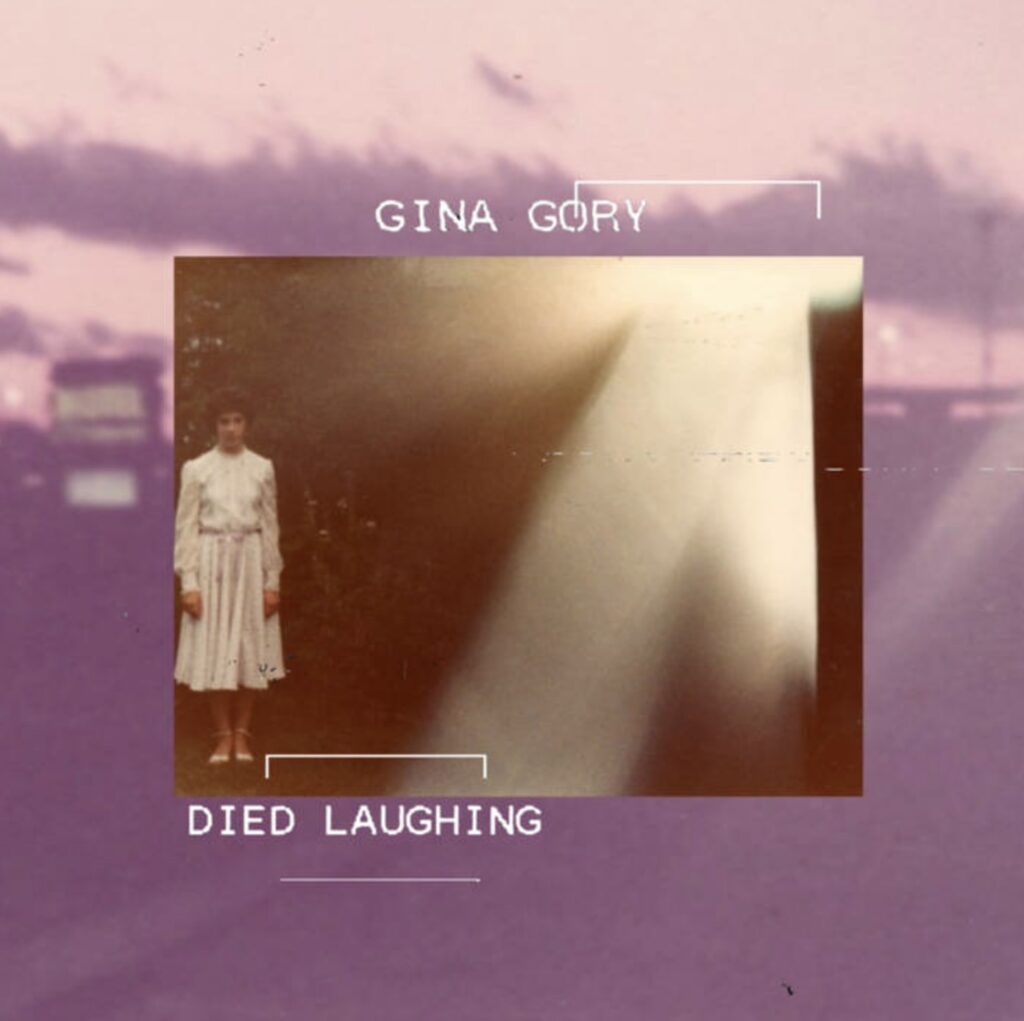
This past weekend, I had to do the impossible: find something to listen to while I was both sad and flying transatlantically. I usually struggle trying to find a good plane record because everything familiar feels boring, and when you’re miserable on top of that, it’s too arduous a mental task to invest in listening to something completely new. But for the sake of not wanting to just raw dog multiple flights, I pressed play on the Pittsburgh-based three-piece Gina Gory’s first full-length album, Died Laughing, and closed my eyes. I listened to it nonstop until I reached California.
Gina Gory make sludgy guitar music that recalls the hooky melodies of a shoegaze-adjacent band but with the punishing repetition of someone like Duster. Gina Gory will call to mind the likes of city neighbors Feeble Little Horse with their deadpan delivery and fuzzed-out guitars, but Died Laughing is more rooted in horrorcore and doomgazing, even though the band have stated they all hate gore and horror. Its three members, Veronika Cloutier (guitar), Connaley Martin (bass), and Dylan Henricksen (keys and drum machine), all contribute vocal duty, and they do not incorporate a live drummer for shows. Inspired by a customer with the alliterative name Lizzy Lust, Cloutier — who works at The Government Center, a combination music venue, record store, café, and bar in Dormont, Pennsylvania — decided to christen her new band as Gina Gory. It’s not a reference to a person or band member but a representation of the band as an ethereal and dispossessed wandering spirit, perhaps the younger sister of an Emily the Strange type.
The trio rehearse with their instruments unplugged and have been gigging regularly for almost two years, but everything on Died Laughing sounds huge: the discordant instruments, tepid machine drumming, whispering vocals, and trudging bassline. The band’s biography states they’re unable to write pop songs because they are too “haunted by the ones they’ve already buried.” So a Gina Gory song is like if a pop song was deconstructed, cremated alive, and then resurrected, its strong melodies buried in currents of distorted guitars and noise and dissonance.
Tracks like “Bunny” become earworms due to their catchy repetitiveness and textured noise, layers of carefully-selected instruments droning in and out of each other. On “The Loser,” which could have been a California surf-rock song in a past life, starts off as a gothic rendering of, perhaps, The Beach Boys before descending into cosmic lawlessness after the first minute. On “Hart of Gold,” the most outright pop track of the album, Cloutier and Martin plead: “Don’t break my heart, it’s all I’ve got / don’t pretend you’re here when you’re not / heart of gold, without you my heart grows mold.”
Perhaps Gina Gory’s best talents are identifying what elements make an excellent pop song before ultimately destroying it and slowly putting it back together, piece by ashen piece. They are happy to let the embers and fires coating their choruses and verses burn.
